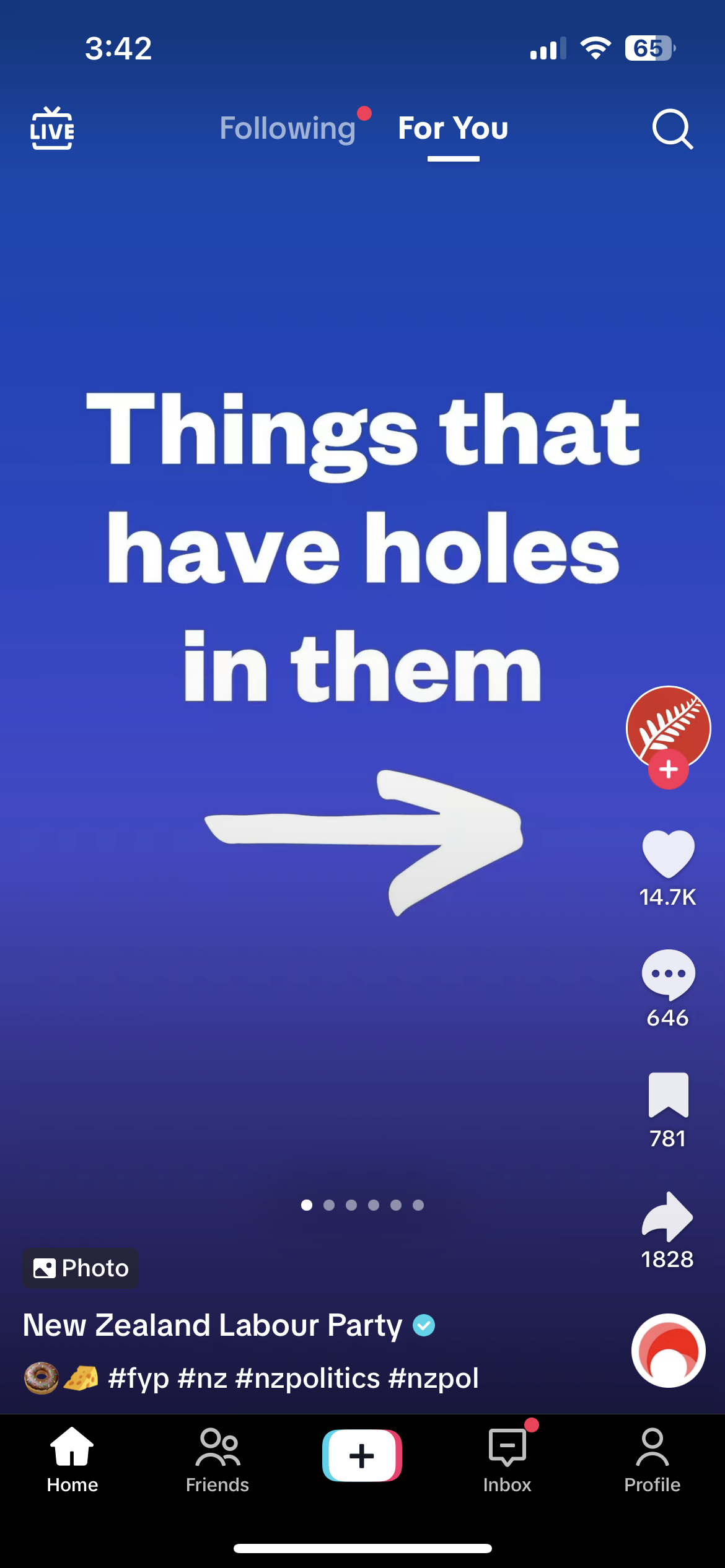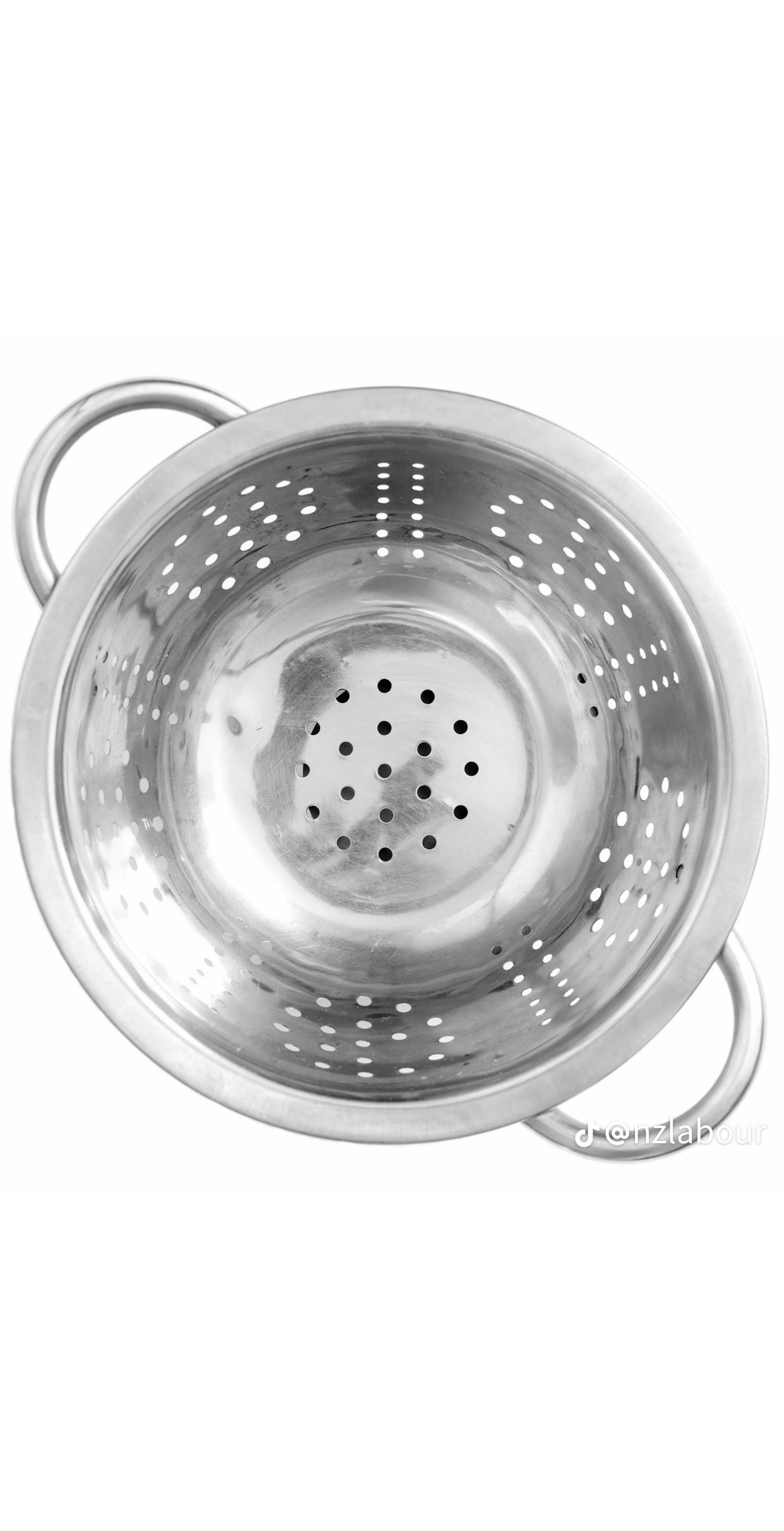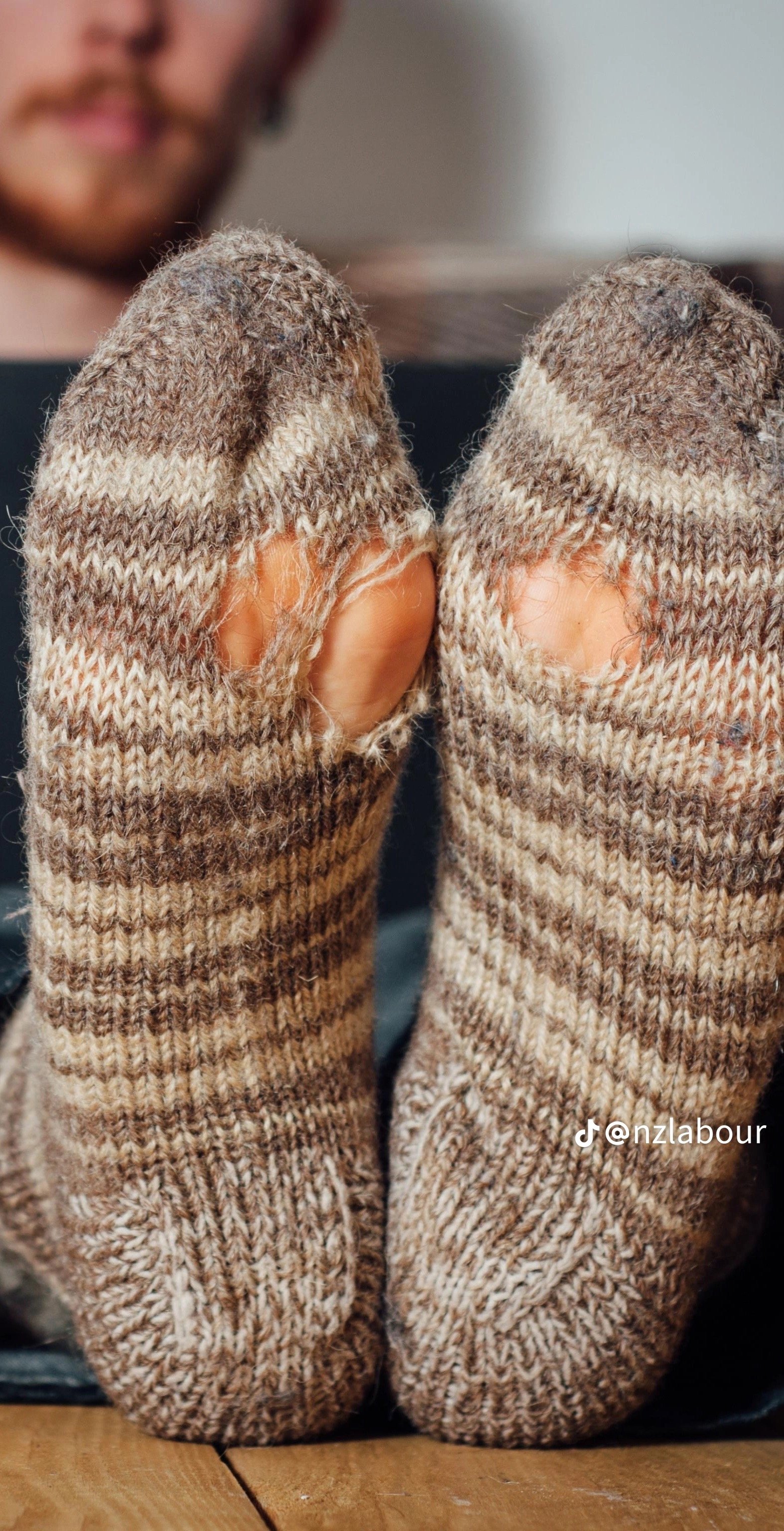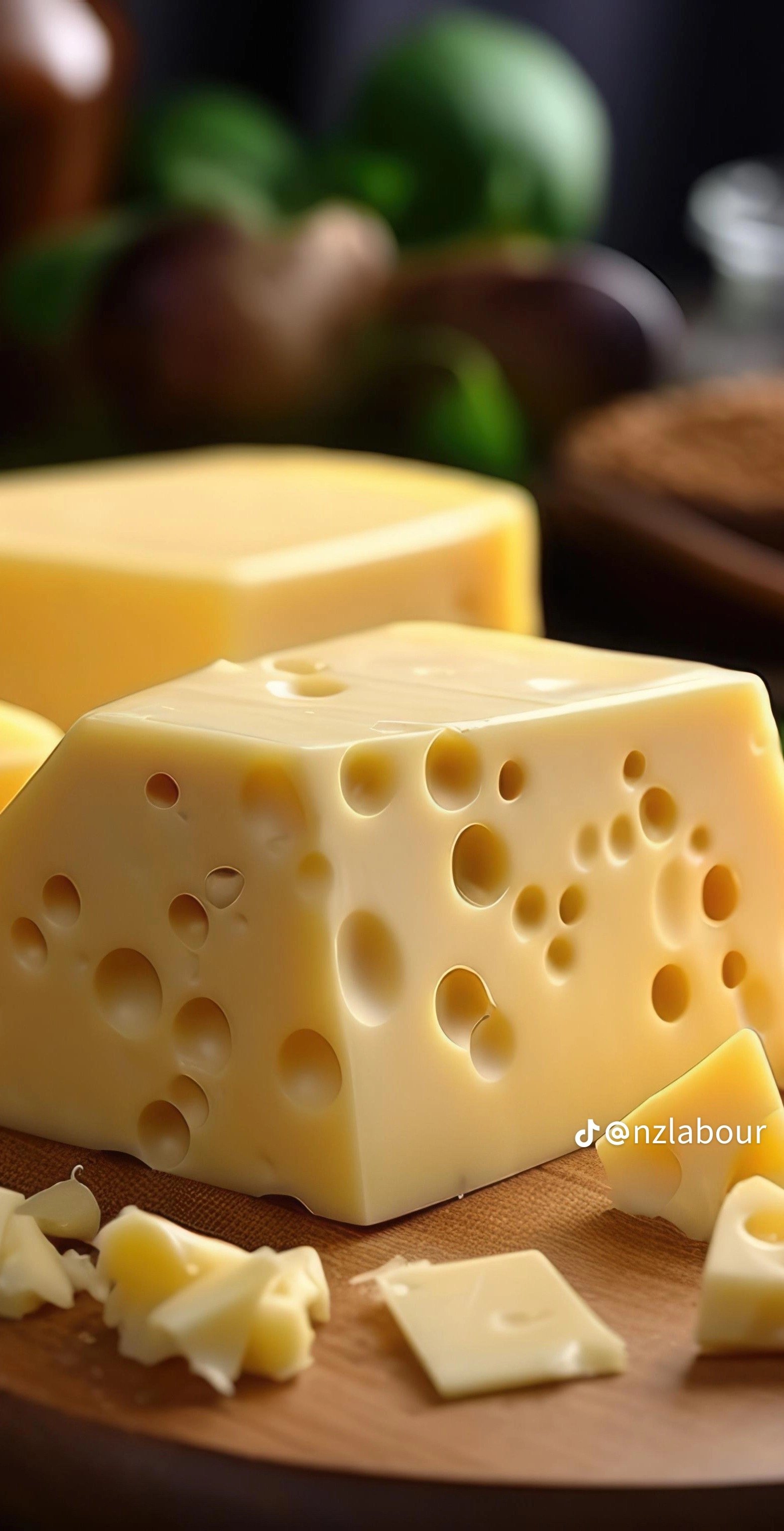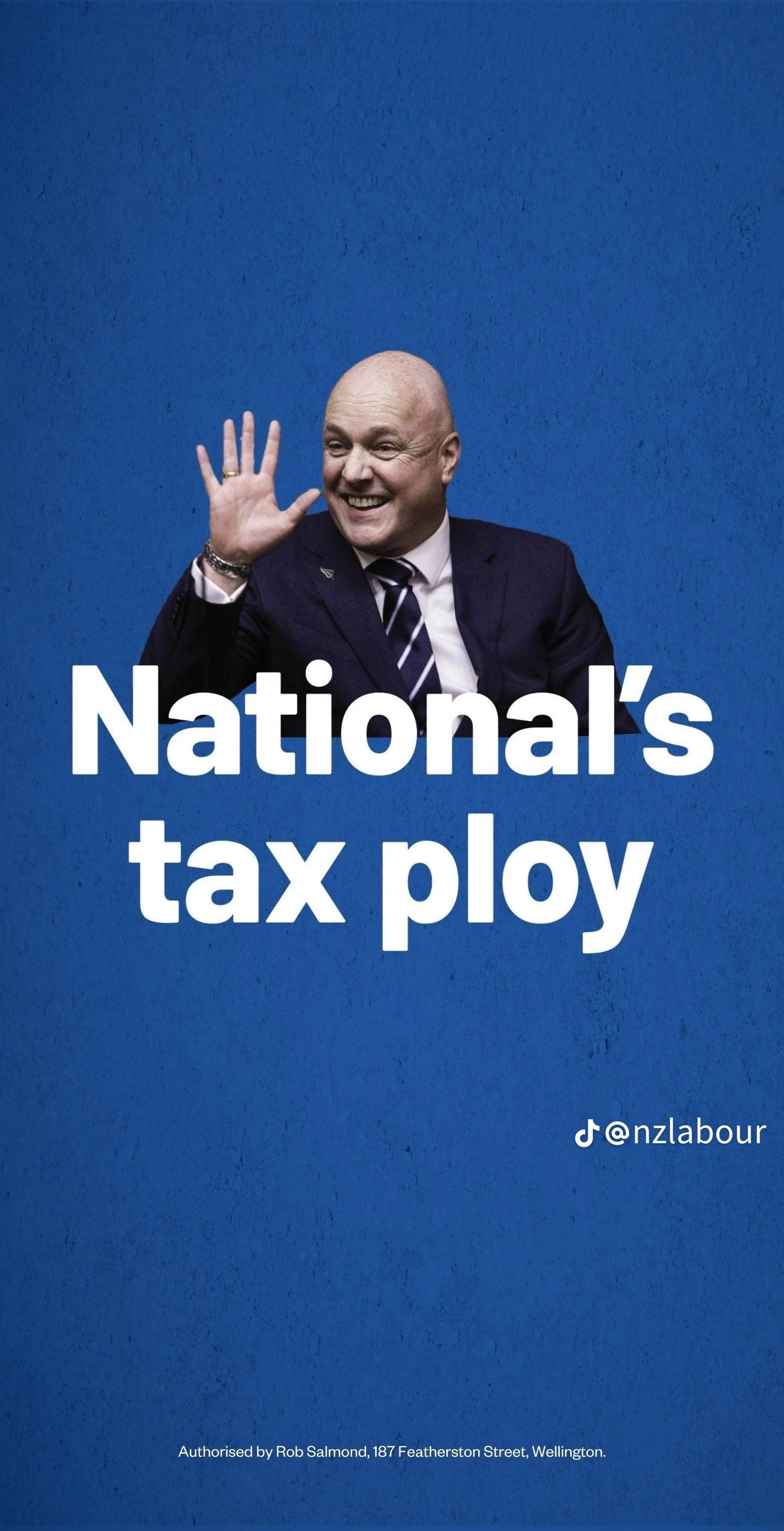The newest frontier: Political TikTok
Over the past several weeks, my TikTok feed has been inundated with a new form of political campaigning by parties from across the spectrum. National, Labour, Greens, Act, Te Pāti Māori and local MPs have all popped up, with Shane Jones of New Zealand First even singing and rapping in several TikToks authorised by their party.
Typically, political parties and politicians have advertised on radio, TV, print/digital news outlets, Facebook and X (formally Twitter); however their emerging use of TikTok represents a play at an entirely new demographic. While the parties have their overarching campaign narrative sorted, those currently finding success on the newest of social media platforms understand that messages need to be designed and delivered to suit.
TikTok’s user base is the youngest of all social media platforms. An estimated 1.4 million people in New Zealand are on it, and about half are 24 and under. It’s this demographic that dominates what content performs well on TikTok, translating into a platform that emphasises short-form video.
The ‘medium is the message’ and through baked-in discoverability tools, these videos can be instantly served to thousands of people. This makes New Zealand political TikToks such an unique endeavour. ‘Traditional’ messages, style, and tone are being restructured to engage youth, with a view to secure political support on election day.
Historically, 18 to 24 year olds have been the least likely to hit the polls, with 20 - 30% of eligible youth not registering their vote. This demographic also has the largest proportion of unenrolled eligible voters at 38%. It’s been shown that voting once is a strong indicator of voting again in future, so getting young people to enrol and securing their vote presents political parties with a huge opportunity not only today, but for many elections to come.
Our two largest political parties operate their TikTok accounts in distinctly different ways. The Labour Party’s account consists largely of repurposed clips from parliament, digital media, interviews with MPs and footage of Prime Minister Chris Hipkins on the campaign trail. Labour’s been a little late to the game, beginning their content generation at the end of August. Although late adopters, their most popular content speaks to where success on TikTok lies.
A slideshow showing multiple everyday objects that have holes in them, before revealing National’s tax policy, is their most successful post with more than three times as many views as anything else on their account. This is a great example of the type of content that performs well on TikTok, but is poorly suited for other channels.
The National Party is the most popular New Zealand political party account on TikTok, with more followers than any other party by a wide margin. They have been posting content consistently since November 2022, allowing time to gain a following. This has given their social media team time to experiment and refine their approach to content production well in advance of the election. And, in that time they’ve shown they’re willing to try pretty much anything, regardless of tone or style.
In one video, Christopher Luxon and Chris Bishop talk about policy, while sensory videos play below. In another, Luxon remarks about the popular trend of the ‘grimace shake’ before lambasting Labour policy.
The best example of this new type of political communication, is National’s TikTok filter game illustrating how tax cuts will save kiwis money, and inviting their audience to create their own videos using the filter.
While it’s possible that they won’t go so far as to convert younger voters this weekend, these accounts have clearly reached what has otherwise been a long-neglected and notoriously difficult to engage demographic. With more young people than ever engaging with politics in 2023 through their much-used screens, they might feel compelled to participate in democracy for the first time in their adult lives.
With Election 2023 just days away, the impact that these TikTok accounts have on the results will be interesting to watch. As a 20-something, I’m keen to see if there is an uptick in young voter enrollment? Will more youth have their say this Saturday? Will we see an increase in young people becoming aspiring politicians themselves?
One thing’s for sure - TikTok has cemented itself as a new strategic frontier for a previously untapped demographic, as each party looks to lay a claim on the youth voters of this election, as well as future ones to come.


